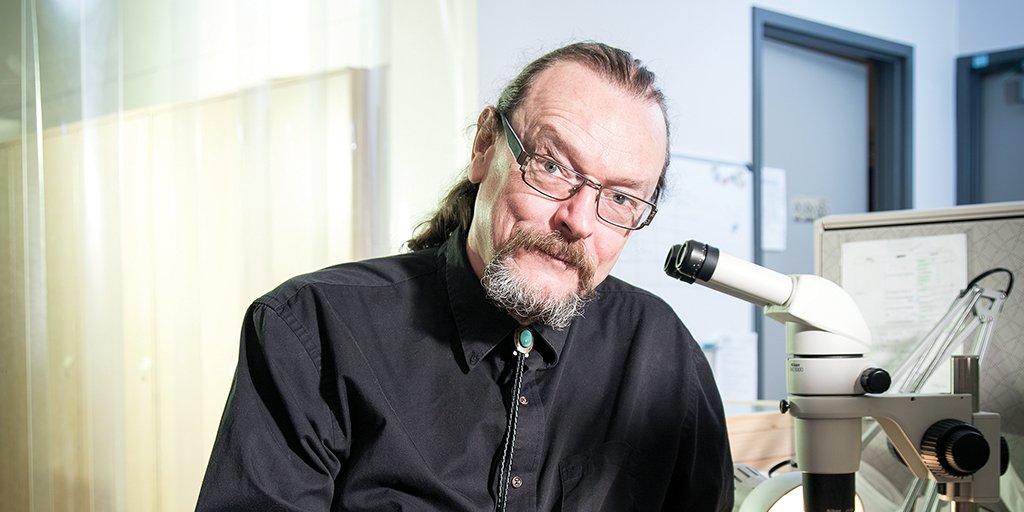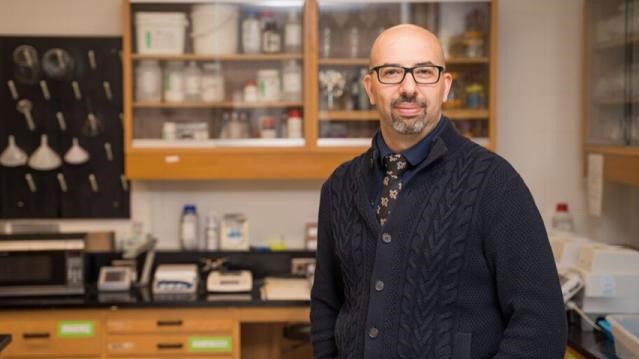BEEc is a network of interdisciplinary researchers with the purpose of pushing the limits in bee research, education, public outreach, and policy. Our work is guided by the Executive Committee, with expertise in bee genetics, ecology, systematics, biodiversity, conservation, evolution, behaviour and statistics.

Dr. Sandra Rehan is an expert on social insect genomics and pollinator health combining molecular evolution, behavioural ecology, population genetics, and phylogenetics to understand sociobiology, biogeography, and nutritional requirements.
Dr. Sandra Rehan, Principal Investigator, Director
York University’s Tier 2 Research Chair in Molecular Ecology and Behavioural Genetics
Professor Biology Department, Faculty of Science
Dr. Rehan’s research focuses on bee biodiversity and social evolution. She recently was awarded the prestigious NSERC E.W.R. Steacie Memorial Fellowship for her research in bee genomics, molecular ecology and behavioural genetics and was inducted as a Fellow in the Linnean Society of London. With a special interest in the origin and maintenance of social behaviour in bees, her lab has three main foci: molecular phylogeny, behavioural ecology, and comparative genomics. Employing these three levels of biological integration to study bees at multiple evolutionary scales, research in the lab ranges from natural history and taxonomy to molecular phylogenetics and biogeography. Dr. Rehan uses comparative genomics to uncover the genetic basis of group formation and transcriptomics to understand the epigenetic modifications involved with social experience. Long term studies of bee biodiversity across landscapes are conducted to determine plant-pollinator associations and the status of wild bee communities. Additional biodiversity survey specimens offer invaluable data to discover cryptic species, study species ranges, adaptation and ecological niches using comparative morphology, population genetic, and geospatial modelling techniques.
Dr. Amro Zayed, Principal Investigator
York University’s Tier 2 Research Chair in Genomics
Professor, Biology Department, Faculty of Science
Dr. Zayed’s research focuses on the genetics, genomics and behaviour of social insects using the honey bee as a model organism. Using genomics, applied tools are being developed to improve honey bee health and to understand the causes and consequences of population decline in native bees such as bumblebees. Zayed has received over $20 million dollars in research funding since 2009 from a variety of sources including, Genome Canada, Ontario Genomics, NSERC, and the Ontario Ministry of Research and Innovation. Awards include the Governor General’s Gold Medal in 2007, the Ontario Ministry of Research and Innovation’s Early Researcher Award in 2010, the Faculty of Science’s Early Career Researcher Award in 2014, a York Research Chair in 2015, and YorkU’s President Emerging Research Leadership Award in 2017. Dr. Zayed was recently awarded the Entomological Society of Canada’s Gordon C. Hewitt Award for outstanding contributions to the field of entomology.

Dr. Laurence Packer, a Distinguished Research Professor at YorkU, has built and continues to maintain the largest Canadian collection of bees, currently estimated at over 300k specimens from all over the globe!
Dr. Laurence Packer, Principal Investigator
Founding Member, Centre for Bee Ecology, Evolution and Conservation
Distinguished Research Professor, Biology Department, Faculty of Science
Dr. Packer’s research focuses on bee systematics, phylogeny, taxonomy (including DNA barcoding) and biogeography. During the early years, research was primarily sociobiological and now includes published work on topics as diverse as genetics, conservation, behaviour, invasive species, urban ecology, climate change and nest architecture. As a world expert on wild bees, over the past 20 years Dr. Packer has built up a world class research collection – the largest of its kind in Canada, housing over 500 000 specimens from all over the world (>100 countries) and including perhaps 95% of the world's 500 or so bee genera. Leading the campaign to obtain DNA barcodes of the world's bees, Dr. Packer's lab has published over 200 research articles and described over 130 new species (including the 20 000th bee species) as well two new genera of bees. A past member of COSEWIC and twice a member of NSERC's Ecology and Evolution research grant panel, Dr. Packer has obtained funding from a diverse array of sources including NSERC, National Geographic, the FAO, Bioversity, the Weston Family Foundation and a private donor. Author of the award-winning book "Keeping the Bees" Harper Collins and co-author (with Sam Droege) of "Bees: an up-close look at pollinators around the world" Voyageur Press, which has been translated into Dutch, French and German.

Dr. Jane Heffernan, director of York University’s Center for Disease Modelling, is applying her modelling skills to help understand how pathogens and pests affect colony health.
Dr. Jane Heffernan, Principal Investigator
Director of the Centre for Disease Modelling (CDM)
Professor, Department of Mathematics & Statistics, Faculty of Science
Dr. Heffernan’s research focuses on understanding the spread and persistence of infectious diseases. The Modelling Infection and Immunity Lab focuses on the development of new biologically motivated models of infectious diseases (deterministic and stochastic) that describe pathogen dynamics in-host (mathematical immunology) and in a population of hosts (mathematical epidemiology). More recently, Dr. Heffernan is focusing on applying mathematics and modelling to studying pollinator health and diseases biology. Dr. Heffernan was recently elected as a Member of the Royal Society of Canada's College of New Scholars, Artists and Scientists. In addition to being a mathematics professor, Dr. Heffernan is the Director of the Centre for Disease Modelling (CDM) and serves on the Boards of Directors of the Society of Mathematical Biology (SMB) and the Canadian Applied and Industrial Mathematics Society (CAIMS).
Dr. Gordon Fitch, Principal Investigator
Assistant Professor, Biology Department, Faculty of Science
Dr. Fitch’s research focus is on the effects of environmental stressors on wild bee populations and foraging behaviour, and how this influences pollination and plant reproduction. He uses eco-evolutionary approaches to study how disease, pollutants, and land use/land management shape plant-bee interactions in anthropogenic landscapes, particularly cities and farms. A key focus of his lab is using an understanding of ecological complexity to promote win-win approaches to the design and management of human-dominated landscapes, simultaneously benefiting biodiversity and human wellbeing. To do this, the lab maintains collaborations with social scientists, community-based organizations, and government agencies at the municipal and national levels. Dr. Fitch has received funding from NSERC, Environment and Climate Change Canada, and the US National Science Foundation, among others.

A pollination ecologist, Dr. Gordon Fitch studies how disease, pollution, and urbanization shape the ways bees interact with plants, and what that means for the health and reproduction of both bees and plants.

